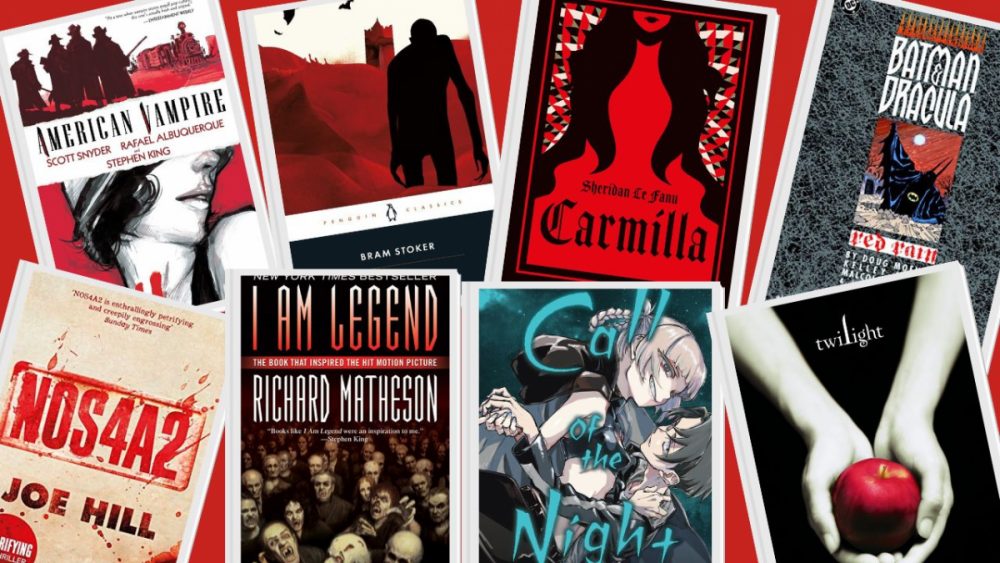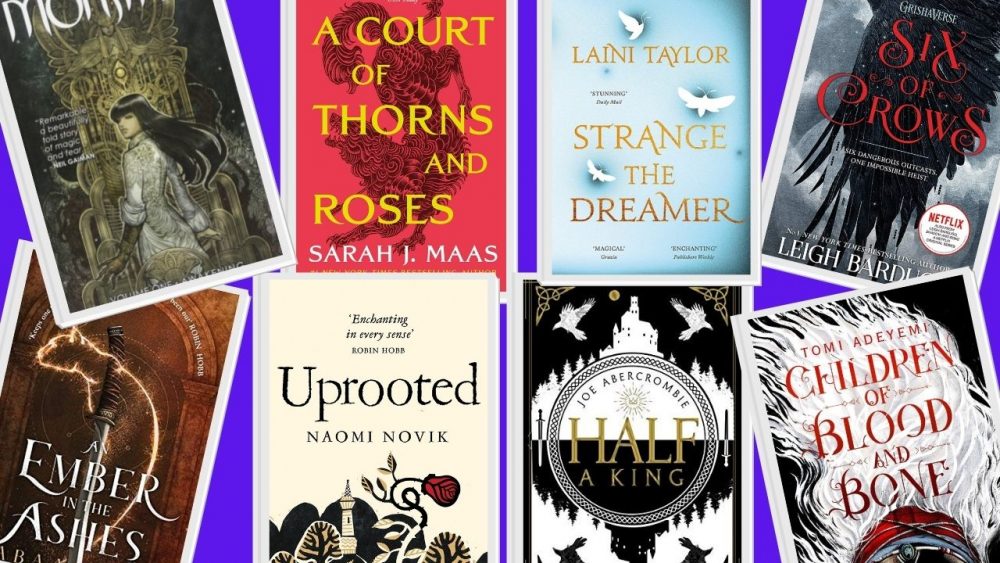In 2016 this small Norwich-based indie press by the name of Strangers Press published a selection of chapbooks representing a range of unique Japanese voices in translation known as Keshiki (roughly meaning ‘landscape’).
Three years later, they have returned with a new series: Yeoyu. Eight Korean short stories by eight Korean authors, translated by six wonderful translators (including our own dear friend and owner of Tilted Axis Press, Deborah Smith). Here are eight reviews of these Korean short stories, discussing each tale’s plot, themes, and impact.
Five Preludes & A Fugue by Cheon Heerahn
Translated by Emily Yae Won
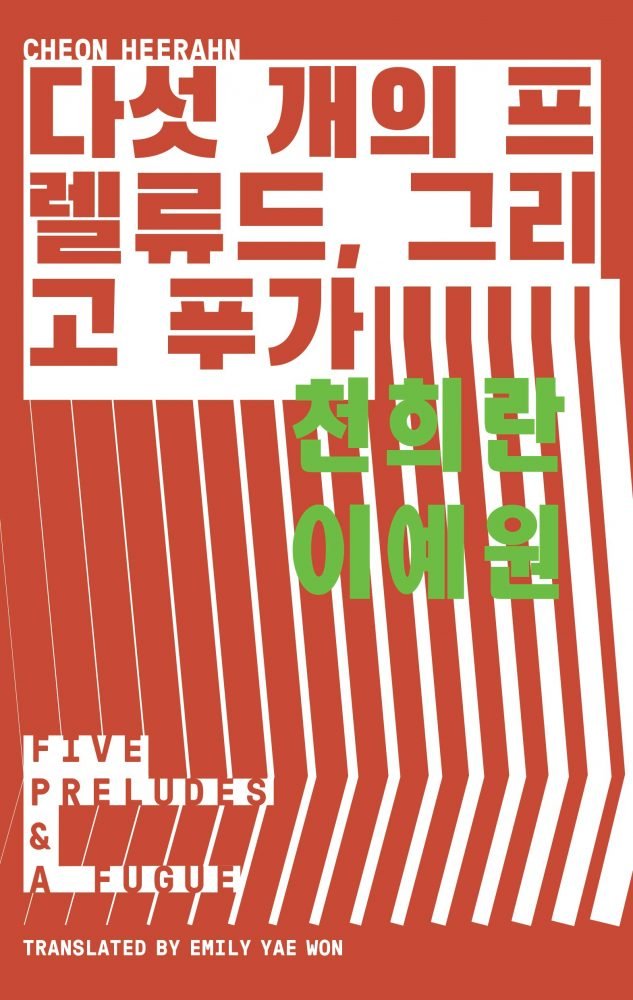
Fire Preludes & A Fugue, the first of these Korean short stories, is written through the engaging and refreshing narrative style of two characters exchanging letters (which reminded me immediately of Dracula).
The characters are Hyoju, a young woman who is soon to be married, and her sonsengnim – a polite term of address in Korea, usually applied to teachers, but in this case Hyoju’s sonsengnim was the woman who raised her after Hyoju’s mother passed away. Sonsengnim was also the last person to see Hyoju’s mother alive; in fact, she witnessed the death.
Now, Sonsengnim is in Switzerland and Hyoju is pregnant and preparing for her wedding. She has reached out to Sonsengnim for more answers and details concerning her mother’s demise. What begins as a cold and unsettling exchange gently twists into an exploration of these two women’s entwined pasts and, eventually, into a twist of a finale that could rival Oldboy in its momentum and execution.
Five Preludes & A Fugue is less than 50 pages in length and yet has the gravity and pace of an epic. The back-and-forth in correspondence between these two women speeds up and slows down like a rollercoaster before hitting a revelatory twist ending that comes out of nowhere but also doesn’t disrupt the flow or feel out of place.
We become so involved in Hyoju’s youth and Sonsengnim’s secrets so quickly and effortlessly; a testament to Cheon Heerahn’s ability to not waste a single word unless it’s useful. This is an incredible first story, and the most impactful way to begin this collection of Korean short stories.
My only gripe is with the choice of keeping the honorific Sonsengnim intact for the translation – most non-Korean speakers will be lost as to the meaning of this word. But it’s a minor gripe with an otherwise masterful and eloquent translation.
Read More: Keshiki Review (Part 1)
Old Wrestler by Jeon Sungtae
Translated by Sora Kim-Russell
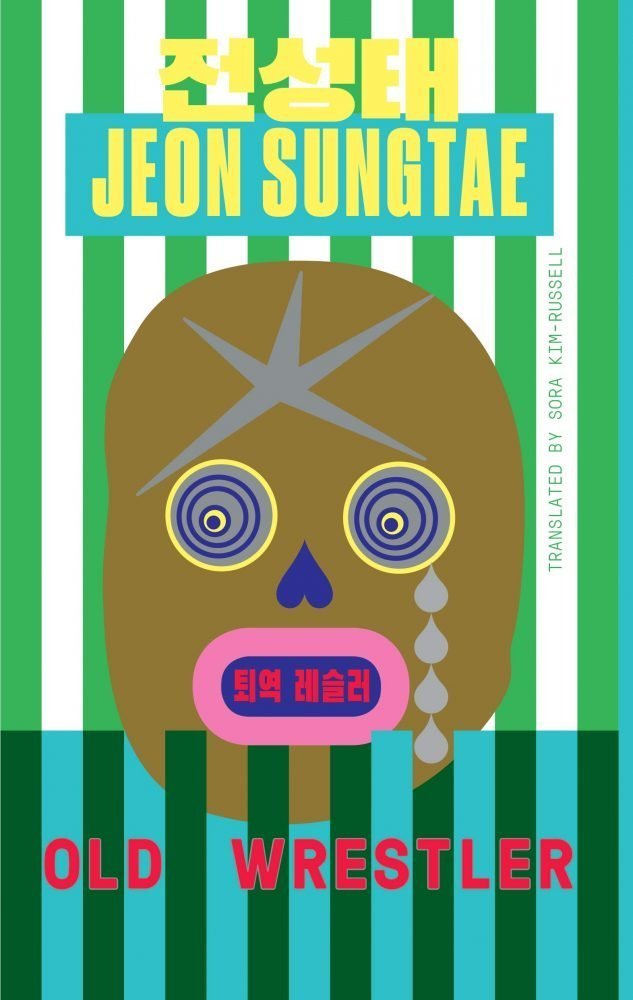
From the deeply layered and introspective to the subtly surreal but equally introspective. Old Wrestler describes exactly that, an old wrestler from a nowhere village in Korea who went on to attain greatness in the ring. He spent time working in Japan and became a legend of the wrestling world.
Today, he has an in-house nurse who helps him with his medication and his memory. The wrestler’s mind and memories have become brittle and fragmented, and now he often finds past in a haze and the world around him an overwhelming and intimidating place.
When the old wrestler is called back to his hometown, he is escorted around by a photographer who asks him to recall things to see if the myths surrounding this once-great wrestler are true, but of course the old wrestler struggles to recall things with clarity. He cannot tell the order of things, what is fact or fiction.
The character of the old wrestler may represent something broader, something political with regards to how Korea views its history, hence the repeated mentions of Japan. It could be that Jeon Sungtae has a message concerning Korea’s memories and treatment of its past, but the story is kept vague enough as to only hint at the suggestion of this. It is ambiguous, but there’s a definite venom in the ink.
As for the writing, this story is unremarkable in its characters but the translation by Sora Kim-Russell is fluid and elegant. Reading Sora’s translations is a lesson in adaptation; she translates complex ideas and tricky vocabulary expertly every single time. There’s never any question that she’s one of the great translators of Korean literature, as Korean short stories like this one can prove all on their own.
While it doesn’t reach the same lofty heights as the first tale in this series, this is still a solid addition to a great series of Korean short stories.
Europa by Han Kang
Translated by Deborah Smith
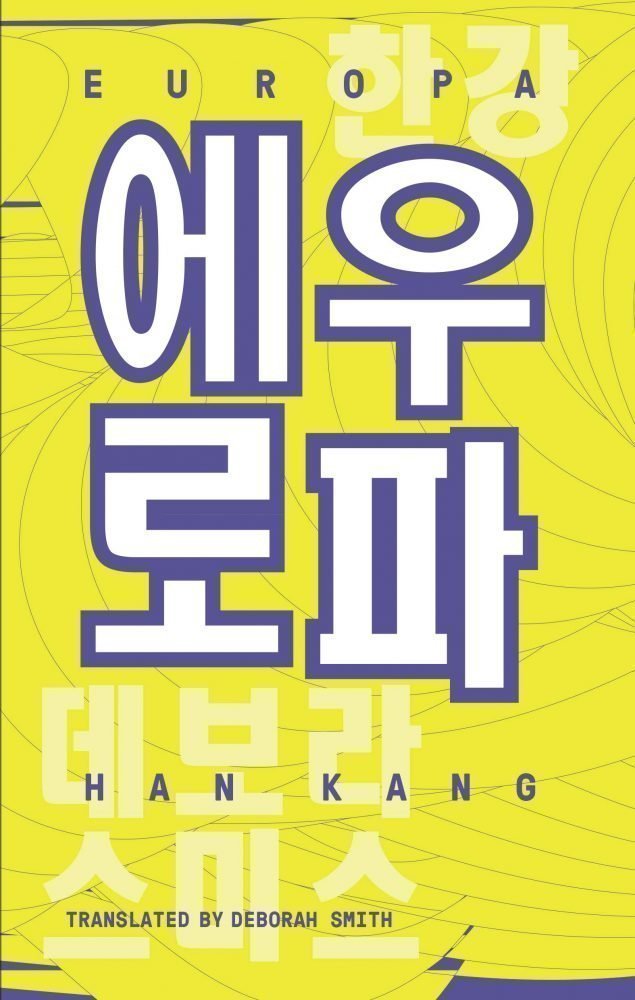
Our protagonist for the third of these Korean short stories has known In-ah for a decade, and In-ah has recently had her marriage fall apart. She now has strange nightmares. Our protagonist has loved In-ah from close-by since before her wedding, but he doesn’t just want to be with her.
He wishes to be her; he has gender dysphoria and wishes to not only live his life as a woman but as someone who resembles the object of his affections.
The narrative of this compelling story is a ship in a turbulent storm: In-ah has separated from her husband; the protagonist makes his feelings clear, while also attempting life as a woman. Their relationship is difficult, strained, and confused.
While I would never consider speaking on behalf of the trans community, I do find something incredible honest and complex in the introspection at play regarding this gender-dysphoric protagonist. The desire to use the woman he is (or perhaps I should say they are) obsessed with as a kind of model for their desired womanhood is a curious and compelling emotional situation.
If you are someone who considers themselves a gay woman rather than a straight man, being both attracted to and aesthetically inspired by a close friend seems obvious, and yet is a situation I’ve never seen explored in fiction before.
The character of In-ah is fantastically realised, painted with clarity and yet also a blurred ambiguity. Her dreams and desires, her marriage, her past, are all offered to us through action rather than exposition, and this allows us to know her but also have her remain at arm’s length.
This is the kind of characterisation that Han Kang is known for, and proved with a deft hand through both The Vegetarian and The White Book (both also translated absurd skill by Deborah Smith). There’s a tightrope act being performed with all of Han Kang’s characterisation that’s almost epitomised here in a 33-page story.
The ambiguity of both our dysphoric protagonist and the woman we come to know only through the protagonist’s eyes is teasing, tantalising, and delightfully frustrating. Our desire to know more is met with a shrug and the realisation that, well, life is often nothing if not ambiguous and frustrating. Europa is absolutely one of the best Korean short stories in this collection.
Read More: Keshiki Review (Part 2)
Divorce by Kim Soom
Translated by Emily Yae Won
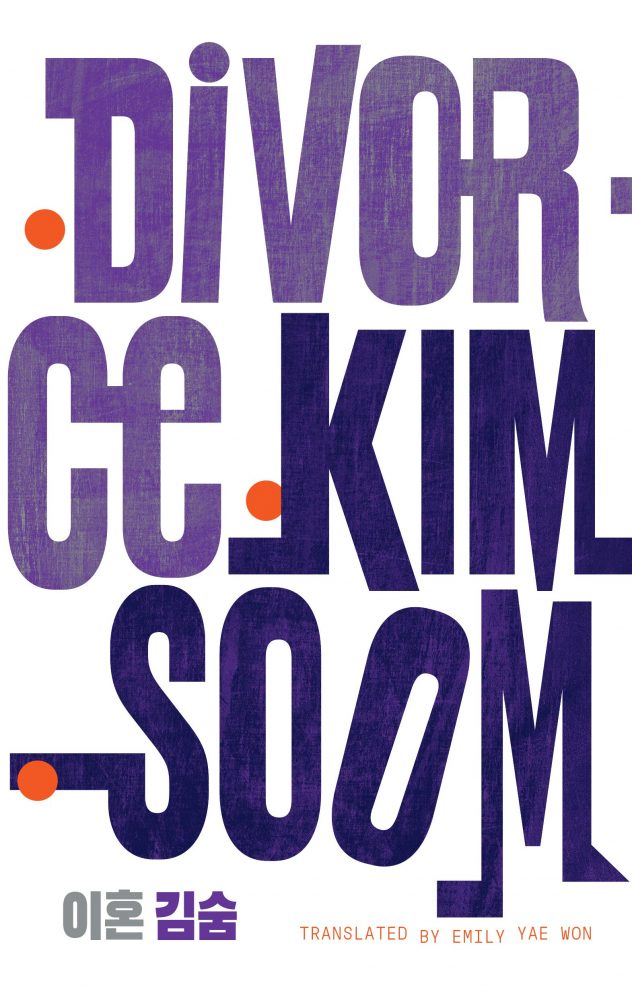
Divorce centres around, well, a divorce. As our unnamed poet protagonist seeks to, and begins the process of divorcing her husband of some years, she meditates on the unhappy relationships of the people around her, most notably her own parents.
Divorce is a bleak but honest conversation about the state of marriage in Korea today. Its attempts to reveal the often aggressive and unhappy underbelly of romance, marriage, and family life in Korea are very much on-the-nose, but that doesn’t make it any less successful in doing so.
The narrative is jumbled but not messy, flitting between memories and the present-day divorce proceedings. One prominent memory is that of her battle with ovarium cancer seven years ago, only a few years into her marriage.
While we are provided with the picture of a tough woman fighting back against the disease by herself, we are also shown a husband (Cholsik) who is busy with work – seemingly too busy to put supporting his ill wife ahead of his job.
Cholsik, as a husband, clearly represents this issue of husbands showing a lack of compassion, prioritising their careers, and being generally distant and almost estranged from their wives.
Other husbands, including our protagonist’s own abusive, foul-mouthed, violent father, come to stand for other marital issues that plague many relationships in Korea today. And, of course, these issues can be extended to almost any country and culture on Earth.
Divorce is, as I have said, bleak, even as Korean short stories go. It pulls no punches in asking men to hold themselves accountable for their tendency to be abusive and intimidating at worst, and aloof or uncaring at best. Misogyny and sexism in the workplace – another severe and infuriating issue in contemporary Korean society – is also touched upon.
And while I am entirely in support of a strong feminist voice raging against the injustices and abuses of patriarchy and toxic masculinity in any society, I only wish that perhaps this story hadn’t been so heavy-handed in its execution, giving us so little to hope for as it does. But then, perhaps Kim Soom does feel hopeless, and in the face of so much abuse, who can blame her?
Kong’s Garden by Hwang Jungeun
Translated by Jeon Seung-hee
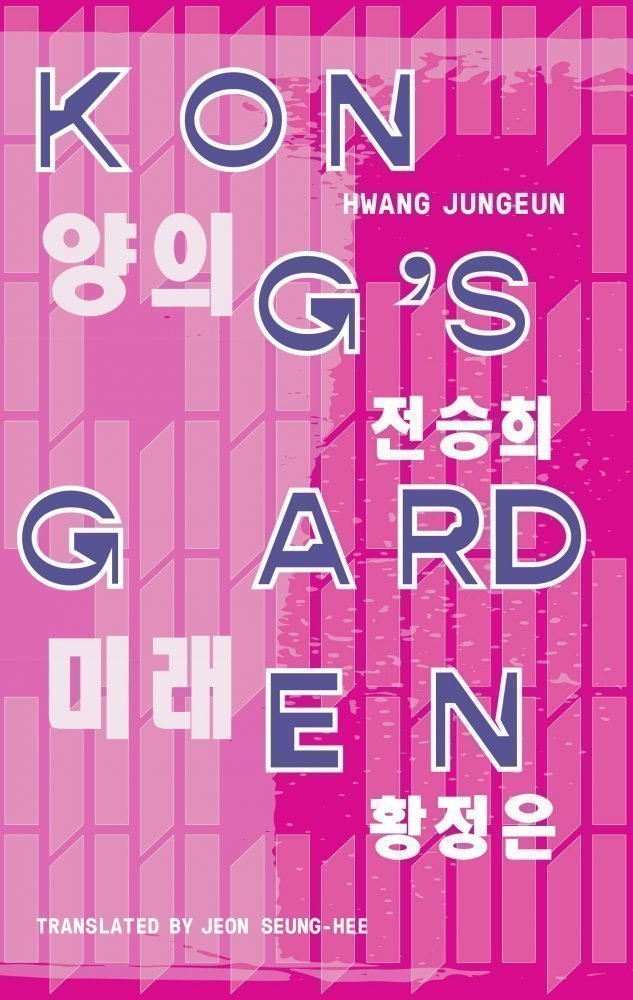
This story left such a hefty impression on me that I actually put it down and went to bed before writing a review, so that I could ponder it and allow it to sink in before writing this the following morning. Kong’s Garden tells the story of a young woman working in a basement bookshop.
She has worked many ordinary and unremarkable jobs, and this is her latest. She enters into a relationship with a colleague named Ho-jae who later breaks up with her suddenly and without warning. It’s Ho-jae who names a trio of kittens which the shop cat gives birth to, the youngest being the Kong of Kong’s Garden.
What’s so engrossing and compelling about this story is its immediacy of pregression in the space of not much at all. A bland and ordinary situation is made so exciting by its telling and its translation. The protagonist drags us through this garden of words and books and average people, encouraging us to stop and admire and enjoy it as we do so.
The story is reminiscent of Convenienve Store Woman or The Nakano Thrift Shop by Hiromi Kawakami, and the blurb itself encourages comparisons to Cormac McCarthy which, actually, is a surprisingly accurate link.
There’s a lot of McCarthy in the pacing; in the slow and lively descriptions as well as the dramatizations of a slightly oddball but ultimately ordinary life. There’s so much to admire and enjoy in this story; it’s a charmer that comes out of left field and is certainly my favouite of these Korean short stories.
Milena, Milena, Ecstatic by Bae Suah
Translated by Deborah Smith
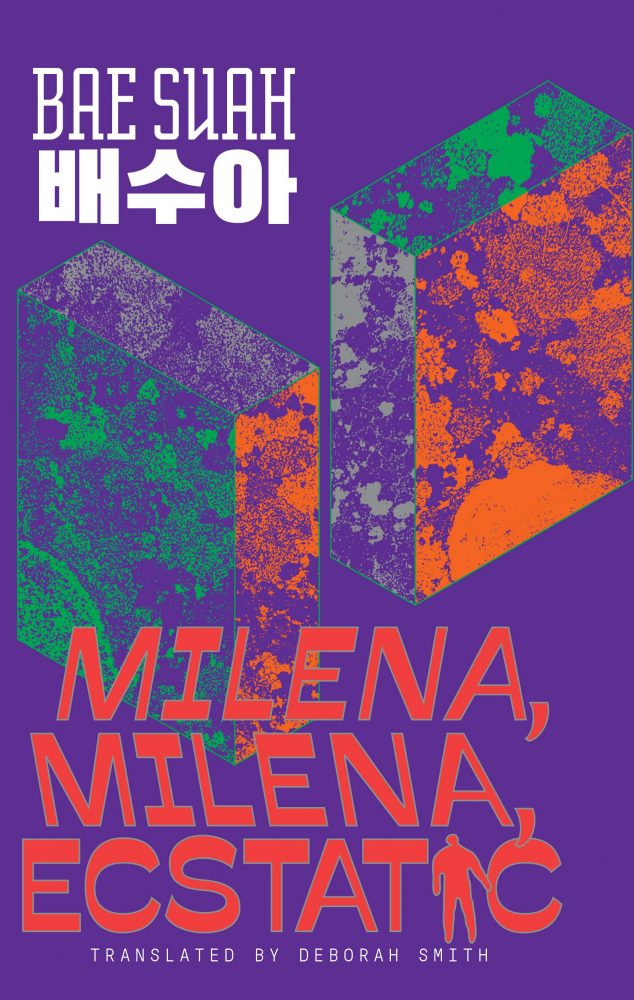
Bau Suah is one of the bright stars of contemporary Korean literature, and I was thrilled to see her inclusion in this collection of Korean short stories. The protagonist is a middle-aged man of enormous pretension. He spends his days on a routine of exaggerated coffee drinking, jogging, bathing, and reading, all constrained to his quiet single home. He brought to my mind the character of Ignatius J Reilly of the classic American A Confederacy of Dunces.
One morning, our protagonist finds a book on his shelf which he doesn’t recognise, a book scrawled with notes and mentions of a woman named Milena. From here, he is whisked away on a journey to film a movie he has been wanting to make.
He is given an assistant, a young woman captivated by his supposed genius. She follows him around and hounds him with questions about his career as a filmmaker until the surreal and unbalanced conclusion begins to close in like an ominous cloud.
This is one of the Korean short stories whose first half I thoroughly enjoyed, guiltily being a voyeur of the life of this pompous man was a lot of fun.
But as the story got away from itself and led to an ending which, I confess, I did not fully grasp, it felt like a dog that had gotten off its leash. It’s a fun ride throughout, but one that felt spoiled by its ending. Though perhaps that’s my failing as a reader, ultimately. I don’t mind admitting that.
Demons by Kang Kwagil
Translated by Mattho Mandersloot
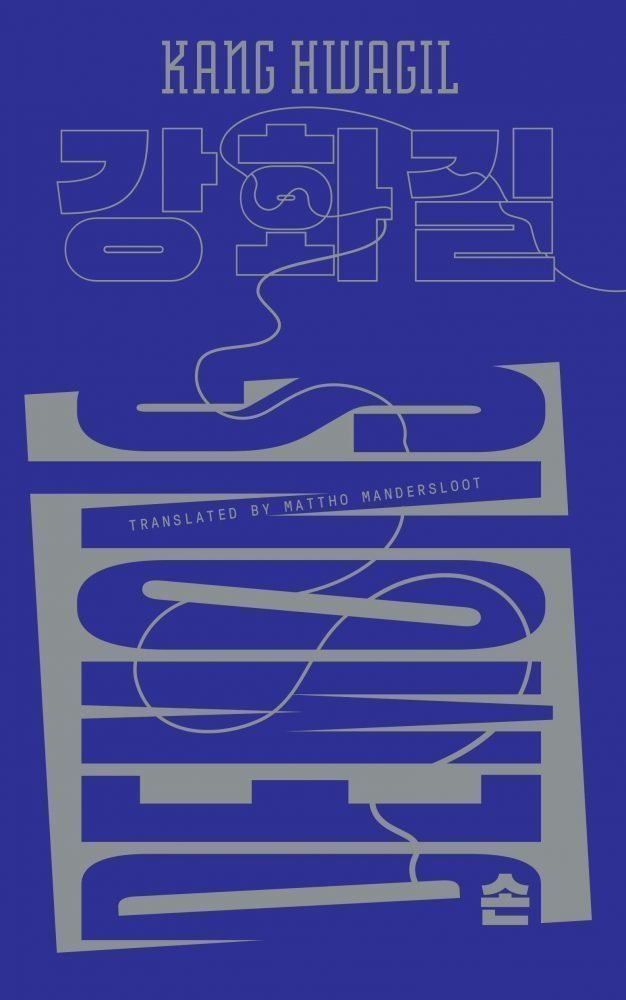
Mattho Mandersloot is a new face and voice in the translation scene for Korean short stories (and hopefully more), and we have every faith that he’s going to be big. If you need convincing, feast your eyes on his translation of this outstanding short story.
Demons tells the story of a mother (Miyoung) and her daughter (Mina) who move to a rural village while her husband is working abroad.
The mother and narrator works as a primary school teacher working to blend in with and understand the rhythms of this isolated community. If you’ve seen the Korean horror movie masterpiece The Wailing, that’s the kind of setting we’re picturing here.
This is a chilling story where demons and superstitions play a role, but they are far more born out of paranoia and distrust than out of any kind of truth. The mother does not trust the other schoolchildren; she is distressed by small changes she sees in her daughter; she finds that the whole village is turning aggressively against her.
What this story does so expertly is build slow and steady tensions between the protagonist and those around her, solidifying in the mind of the reader who the heroes and villains are, only to then flip the script.
It speaks loudly about the dangers of a closed and isolated community, about their politics and traditions, but it also turns on its heels and calls out those of us who do exactly that ourselves. It’s an on-the-fence perspective that can often be irritating but here proves to be valuably introspective. And it’s a delightfully creepy tale to boot.
Left’s Right, Right’s Left by Han Yujoo
Translated by Janet Hong
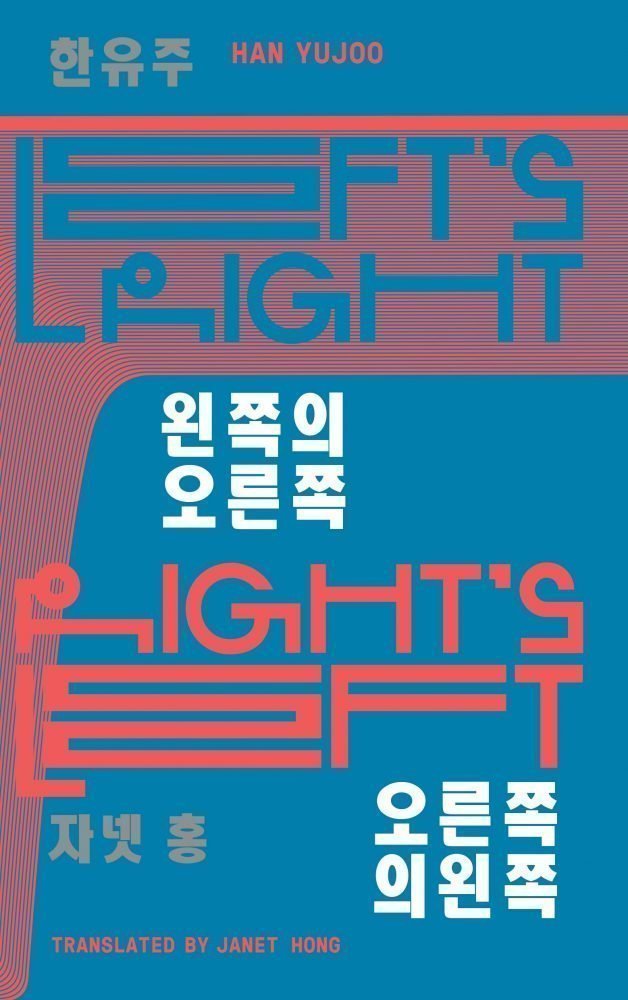
This was one story that I was excited about, with Han Yujoo having written The Impossible Fairy Tale and translator Janet Hong being one of my absolute favourites (in 2019 she created compelling translations of the short story collection Flowers of Mold by Ha Seong-nan and the haunting graphic novel Grass by Keum Suk Gendry-Kim). However, this felt like a lacklustre and confused note to end the collection on.
Let’s Right Right’s Left is a recollection of a woman’s time living and studying in Paris amongst a group of fellow students. She recalls this period in a split-second flashback as her abusive partner grabs her by the hair and threatens to cast her backwards down a stairwell. It’s a ‘life flashed before my eyes’ scenario, but with purpose.
She wants to remember this time in Paris, as well as the specific friend she is addressing as ‘you’. She is making amends, apologising, feeling compelled by regrets and missed opportunities – namely to capture this friend’s story in writing. It’s a unique framing device and something that I find hugely effective: zooming in to a single second and expanding it infinitely, compounding the speed of life with the speed of thought.
Unfortunately, it’s a story that ultimately feels a little hollow. The execution and translation are flawless, but the agency seems to be missing; we are given background information but not enough, and not the right kind. Ultimately, there’s a missing element that ties together this impressively-executed narrative with its own purpose.


